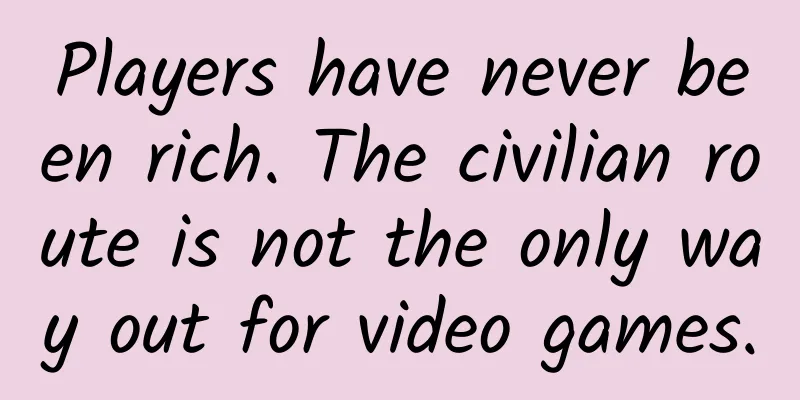Behind an Android ecological disaster, it turns out that Google's worldview has changed

|
The world is changing, Google needs to change, and all the companies that work with Google need to change too. A month ago, Google conducted a "major cleanup" of the Play Store app store.
On February 20, Google removed nearly 600 apps from the Play Store at one time and banned the Google advertising platform accounts of these developers on the grounds of "using forms of ad insertion that Google does not allow" and "having destructive advertising policies." According to BuzzFeed, most of the apps removed by Google this time are from mainland China, Hong Kong, India, Singapore and other places, mainly tools and games. Per Bjorke, senior product manager of Google, said that all the removed apps have been downloaded more than 4.5 billion times on the Play Store. In this "rectification", all 45 products of Cheetah Mobile, which was the most affected, were removed from the shelves. For the entire Android ecosystem, this "great purge" is like an ecological disaster. What exactly happened behind this disaster? Iron Fist OperationGoogle's actions can be described as "iron-fisted". In addition to removing apps from the shelves, Google also banned the accounts of the app advertising platform AdMob and even the account of the advertising trading platform Ad Manager. This means that companies including Cheetah Mobile can no longer cooperate with Google in the advertising field. According to LatePost, before the delisting, Cheetah had been communicating with Google China for several months. At that time, the advertising revenue of four Cheetah apps was frozen by Google, and Cheetah also made some adjustments to its products to try to adapt to Google's advertising policy. On February 20, Google sent an email saying that most of the frozen advertising revenue could be returned to Cheetah, but two hours later, all 45 Cheetah products were directly removed from the shelves. Some of the game apps were removed without even receiving any warning from Google. Without any advance warning or guidance on rectification, all apps related to the developer were removed from the shelves. This kind of almost unconditional approach is rare in Google's history. Google said in a statement that it has developed an algorithm based on machine learning to identify illegal apps. However, operations such as removal and banning normally require manual review. On the other hand, it is unlikely that all Cheetah products can be identified as illegal through an "algorithm". Google's ban on Cheetah is obviously not the result of an algorithm. Cheetah Mobile is not the only company affected. On March 9, Antutu, which has an investment relationship with Cheetah Mobile but operates independently, also had all its apps removed from Google Play. The difference is that Antutu's marketing manager said that Antutu received an email notification from Google, which clearly stated that it was because of the relationship between Antutu and Cheetah Mobile that Antutu's apps were removed from Google Play. Cheetah's tool and game businesses are highly dependent on Google's platform. They need to be distributed overseas through the Play Store and earn revenue through advertising platforms. In the first three quarters of 2019, 23% of Cheetah's revenue came from Google. Affected by the delisting storm and the shock of the US stock market, Cheetah's stock price has fallen by 40% in the past month. Policy squeezeThe change did not happen in a day. In fact, Google's tightening policy had been foreshadowed in recent years. From 2008 to 2015, Google spent eight years to not only make Android the mobile operating system with the most users in the world, but also to generate profits through advertising, its traditional business, on top of this open source system. As early as 2009, Google acquired the mobile advertising traffic platform AdMob, allowing developers to easily integrate advertising plug-ins into their own apps. Since then, AdMob has become the main channel for various free Android apps to make profits. In 2012, Veewo, a domestic independent game company that had been established for less than a year, achieved success with the small game "Super Phantom Cat". The number of downloads on the Play Store exceeded one million within a few months, and it successfully made profits through advertising. But starting in 2015, Google's advertising business hit some boundaries, and its expansion was restricted. In 2018, Google discovered an advertising plug-in called Alphonso, which would use the phone's microphone to "eavesdrop" on users in the background of the game, using machine learning to identify sounds, analyze user behavior, and determine whether the ads were effective. Google's own services also store user location information by default in the background to improve the accuracy of "location-based advertising" push. These operations that touch on user privacy have sparked a series of controversies and prompted Google to begin to change and tighten related product designs and policies. In addition to privacy, Google has also encountered a series of other negative issues related to advertising in the past few years. This includes putting ads in front of some suspected extremist content on YouTube, which was protested and boycotted by advertisers. Google has also faced multiple monopoly charges in Europe, accusing it of profiting from the dominant position of the Google framework in the Android system. All of these have made it difficult for Google to expand. So Google began to pay more and more attention to user experience . Since the number of advertisements cannot be expanded indefinitely, we need to find ways to improve the quality. In 2019, Google's advertising team launched a new advertising solution for mobile games, encouraging game developers to bundle advertisements with the "reward mechanism" in the game, rather than crudely inserting advertisements during the game, to improve the user experience and stimulate users to consume more in-game purchases. Google has no other choice but to be cautious on issues related to privacy and other user experience , and to take a more meticulous approach to cultivate this market. Since 2017, Google has been strengthening the screening and crackdown on Play Store, using AI to crack down on copycat apps, harmful content involving violence and extremism, and malware. Cheetah has become the company most affected by this campaign. "Values" and "worldview" For a long time, users' impression of Google has mostly remained on the value of "don't be evil", it is free, open, and encourages good ideas that change the world. For this reason, many people think that Google's direct harm to the interests of developers this time is a deviation from its values. This view is actually a misjudgment of Google's adjustment. As mentioned above, Google has long had a strategy to adjust its advertising policy, and its view of the advertising business has been changing. This is no longer the era when the advertising business can expand infinitely. What Google has changed is its "worldview" of its own business. With the development of business and the evolution of products, the open and free mechanism has made Android synonymous with "insecurity" and "poor experience". Google needs to change, and all companies that cooperate with Google also need to change . Today, Google is no longer interested in free, open source, and unlimited expansion. After touching the boundary, Google needs to better protect its existing advertising business. It attaches importance to experience and security. Next, we will see the changes in Google's "worldview". Only apps that can adapt to the situation and ultimately provide value can survive in the Android ecosystem. In the business world, "if even the worldview is wrong, then no matter how good the values are, they will not last," said Zhang Peng, founder of GeekPark. "Whether it is a company or a commentator, if they only talk about values every day, they will often become nihilistic. Most of them are either stupid or bad." |
>>: Global mobile phone and home appliance supply chain suddenly "hijacked" by India
Recommend
How do the popular blue Vs on Douyin operate content?
Today, Tik Tok has become a battlefield that cann...
4 strategies for brands to gain traffic from Xiaohongshu (ideas)
With the end of the Spring Festival, the topic of...
What would you most like to do if it snows? Do science popularization! | Expo Daily
Your best "insider" in the scientific c...
Small fire ants "invade" my country! Is it related to red fire ants?
A new invasive pest has been discovered in China....
Porsche may stop using diesel engines as Volkswagen scandal spreads, 20,000 Cayennes will be recalled
After nearly two years of investigation, the &quo...
Disassemble Xiaohongshu's competitive keywords and master the brand placement strategy
Xiaohongshu’s brand marketing cannot be separated...
Breaking the ice of the century: Understanding Apple and IBM's partnership
[[128639]] I think there are four interpretations...
New scientific discovery! Why does the rampant growth of rats have obvious seasonal patterns?
Produced by: Science Popularization China Author:...
iQiyi and Youku: The secret of attracting millions of users a day
The eternal topic - the pressure of user growth A...
Mechanical enterprise station optimization process sharing [Mold temperature controller]
Since most readers are building corporate website...
The creator of Python talks about Python
According to the poster, Python creator Guido van...
90% of life depends on "talking"
We talk, communicate and chat with others every d...
9 major types of titles for soft copywriting!
For a soft text editor and operator, the importan...
The Ministry of Education released the 2020 National College List: Chongqing has 68 general colleges and universities
Please be careful when filling in your applicatio...
China Association of Automobile Manufacturers: A brief overview of automobile industry production and sales in April 2022
In April 2022 , automobile production and sales s...

![[Video 42] Looking back on the road to mastery: interviews, cases, and supervision collection of the founders of psychotherapy schools](/upload/images/67cc04de69d5e.webp)







